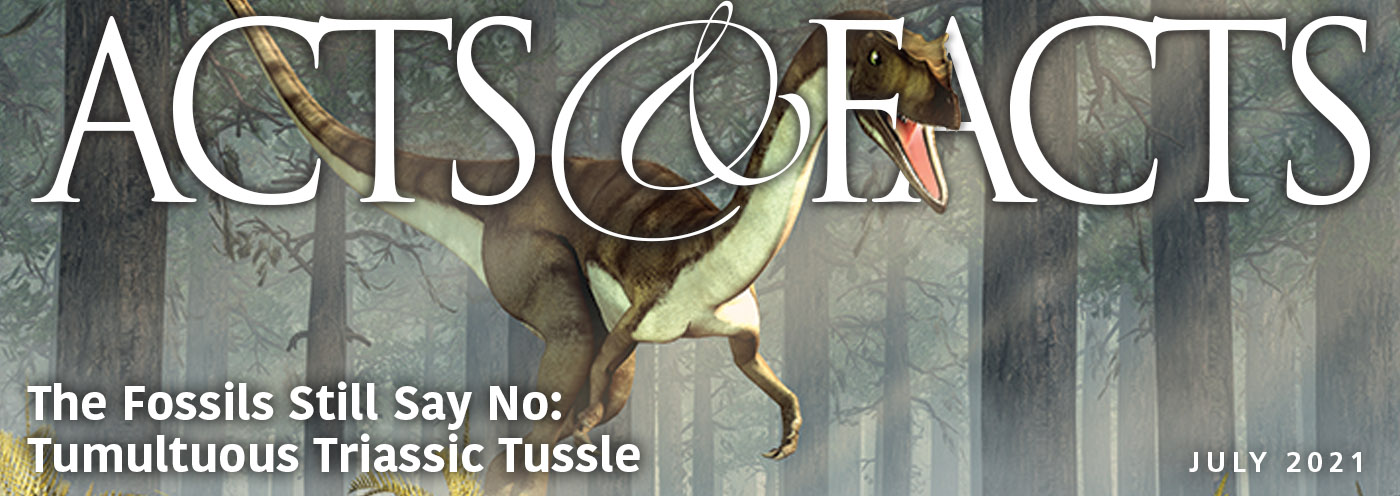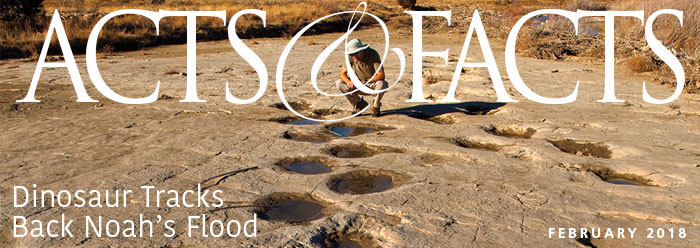Sponges have long been considered one of the "simplest" forms of life. Now an international team of scientists has analyzed sponge DNA and concluded that it shares representative genes associated with the core processes of all animal cells--including human cells. What does this say about where sponges and people came from?
Sponges filter their food from organic debris in seawater and come in a wide variety of sizes, shapes, and colors.1 Although they do not have different tissues, there is a division of labor and a coordinated structure among their cells. The researchers sequenced the DNA of a gray-colored sponge native to the Great Barrier Reef and then compared it to the genomes of other animals.
For decades, zoology textbooks have described sponges as the simplest form of life that could still be called an "animal." Therefore, they have also been considered to represent the assumed common ancestor of all animals, from insects and squids to birds and humans.
But this DNA comparison, published in the journal Nature, not only found extensive similarities across gene families, but also very similar gene layouts.2 Sponges have "more than 90 percent of all the genes associated with human diseases," according to Australian biologist Bernard Degnan, who led the study team.3
A University of Queensland press release on the study stated, "The unanticipated and incredible sophistication of this 600+ million year ancestor rewrites all the textbooks and destroys long-held views that the very first animals were nothing but simple balls of cells."3
But despite the findings and subsequent admission that sponges can no longer be called "simple," Degnan called them "simple" three times in the same press release. Clearly, evolutionary indoctrination is so entrenched that affected researchers cannot abandon the standard language, even while trying to explain contradictory evidence.
This isn't the first time that evolutionists have prematurely and incorrectly labeled living things "simple."4 And these mounting discoveries of "incredible sophistication"3 within the living world actually bolster the creation model, which predicts that organisms were designed by a brilliant Engineer and should therefore exhibit signs of advanced design.
In order to form an animal, even one as "simple" as a sponge, an entire host of specified genes and cell parts are needed. Degnan pointed out in the Nature paper that an animal's cell must recognize self from non-self, identify certain features and chemicals of its environment, attach to adjacent cells, process sugars for energy, separate body cells from sex cells during embryonic development, grow and divide in a controlled manner, defend itself from harm, destroy itself when needed (in programmed cell death), regulate gene function, and differentiate between cell types during development.
If anything, what this international team of researchers discovered was that animals occur as all-or-nothing entities, where the "all" encompasses a very long list of integrated items. Indeed, complicated genes and the precise cell features that they encode clearly show the leap of faith necessary to believe that, without a Creator, a single-cell ancestor took an evolutionary "jump" to become the first fully-fledged animal.
If all animals "emerged" from a "simple" animal like a sponge, then the sponge ought to show minimal gene and body construction, with "later" animals showing incremental increases in genetic information. However, if all the basic kinds of animals were created at an initial point in time, then each one ought to show a fully formed suite of integrated animal features. This latest sponge evidence fits the latter. Sponges and humans share so many genes not because they share an evolutionary history, but because they share the same Designer.
References
- A few sponges live in freshwater habitats.
- Srivastava, M. et al. 2010. The Amphimedon queenslandica genome and the evolution of animal complexity. Nature. 466 (7307): 720-726.
- The origin of animals and disease found on The Great Barrier Reef. The University of Queensland press release, August 4, 2010.
- Thomas, B. Bacteria Study Shoots Down 'Simple Cell' Assumptions. ICR News. Posted on icr.org January 4, 2010, accessed August 11, 2010.
* Mr. Thomas is Science Writer at the Institute for Creation Research.
Article posted on August 16, 2010.







